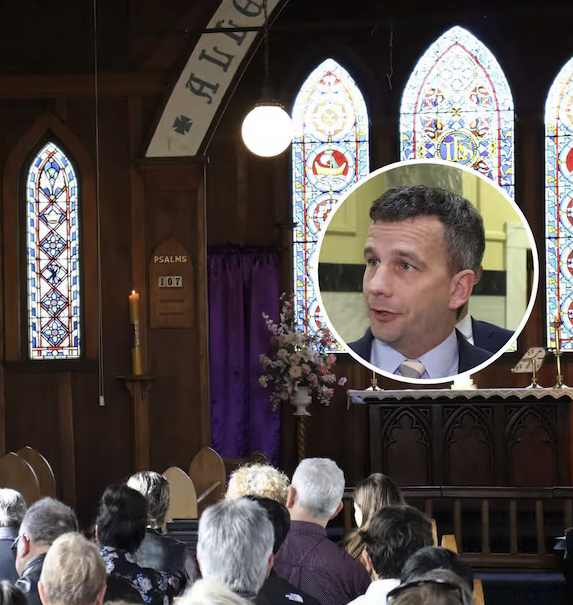'Why didn't somebody stop me?'
Sometimes something I read strikes me in a way that consciously or unconsciously I continue to ruminate upon for the rest of the day, or even the week. One such ‘something,’ was a plaintive question, asked by a young woman, age 13 at the time, when she was brought to court for telling a lie. The lie had significant consequences, which I’ll get to in a moment, but it (the offense) was still only words. It wasn’t like she committed an act of violence or theft.

I read the newspaper most mornings. And supplement it with international online papers. I’ve done so for the last forty years. It’s part of my routine, and my prayer.
What I mean by prayer, in this context, is paying attention to the currents and wind direction, to what’s on the surface and what might be underneath. It’s not about sending petitions to a deity. Though sometimes I can sigh, feel sad, or even groan a little.
I usually skip the predictable ‘shock-you’ headlines, read most columnists and opinion pieces (including those I don’t agree with), think about the world news, notice letters written by people I know (yes, Auckland is a small place), and even occasionally glance at the sports. By then my coffee has been consumed, and I leave.
And that’s the other thing, as I’ve written about before, I like going to a café, to be with other solitary bibliophages (mostly men), who for the princely sum of $4 can drink coffee and read the paper in caffeinated silent solidarity. All at 6.30 or 7.00 am, with or without dog.
Sometimes something I read strikes me in a way that consciously or unconsciously I continue to ruminate upon for the rest of the day, or even the week.
One such ‘something,’ was a plaintive question, asked by a young woman, age 13 at the time, when she was brought to court for telling a lie. The lie had significant consequences, which I’ll get to in a moment, but it (the offense) was still only words. It wasn’t like she committed an act of violence or theft.
She’d told a lie in order to deflect from the fact that she’d been suspended from school that day for bad behaviour. I’m sure she’s not the first 13-year-old to tell a deflecting lie. And her father believed her. And I’m sure he’s not the first father to believe a daughter’s lie.
The trouble was she’d told a lie about what her teacher had allegedly done in the classroom, in front of a class full of students. She wasn’t present in that classroom at the time, but a lot of other students were. And the other trouble was that her father, unlike what most fathers would do, didn’t take his concerns to eitherthe teacher, or the principal, or any other school authority. No, he reiterated the lie online, calling the teacher names and calling for his dismissal. All of which led to more and more trouble. Snowballing trouble.
Until the teacher was murdered.
You might have read about it. In October 2020, Samuel Paty, teaching in the North-Western suburbs of Paris, was stalked and murdered for being wrongly slated, slandered, as an anti-Islamic racist. Tragic. Terrible. His 18-year-old, mentally disturbed, murderer was then in turn killed by police. Also tragic.
And, of course, it all fed into the racial and religious tensions of modern-day France. With Paty now held up as a martyr to the cause of free speech. And maybe, in places the media don’t go, his murderer is also venerated.
As I sat and read all this in café the ‘something’ that leapt out to me was from the young woman. She is now 17, convicted of slander, and carrying the burden of causing an innocent’s death. Her plaintive question was: ‘Why didn’t somebody stop me?’
At first, I thought maybe she was talking about her father, who certainly had some culpability for what transpired. Oh, if only he’d taken it to, and had confidence in, the normal processes of what a school normally does – namely to consider complaints and investigate fairly. In this case the lie would have been quickly uncovered.
But then I thought, maybe she’s talking about her peers. Those other students in the classroom where Paty was said to have said something discriminatory. Any of those students, and all of those students, could have said, ‘Well, I didn’t hear that.’ Or, more forthrightly, ‘That didn’t happen!’
For this was not one of those situations where a pupil might be alone with the teacher, or with no one else within earshot, when it comes down to who of the two are you going to believe? No, this was a public, whole-of-class thing, where the accuser wasn’t even in the room.
So, why oh why, didn’t anyone speak up? Why didn’t somebody try to stop this lie from spiralling out of control? Is peer pressure that great? Are the divides inFrance so great that to be seen to side with a lie is better than speaking the obvious, in-your-face truth?
And is this just an affliction of 13-year-olds? And just in France? Or is the inability to speak up for the obvious, easy-to-prove truth, even if it’s an inconvenient truth, an affliction in many countries, including our own?
My prayer tells me there is something underneath the surface here that is very disquieting.






